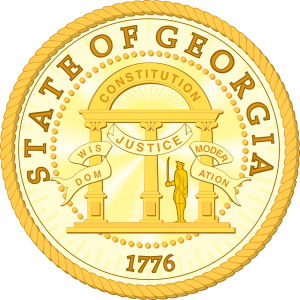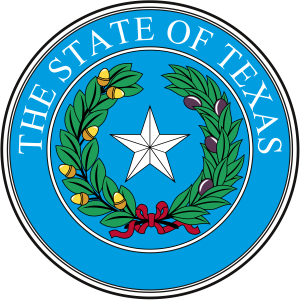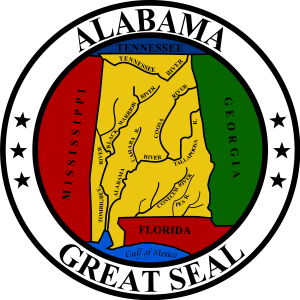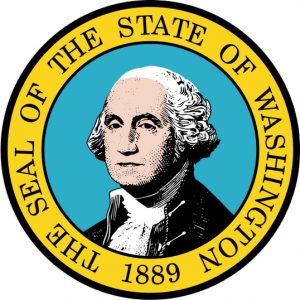The California Court of Appeal held a nonresident S corporation shareholder’s pro rata share of gain on the sale of goodwill classified as business income by the S corporation has a California source and is subject to tax for personal income tax purposes to the extent of the S corporation’s California apportionment formula and is not sourced 100 percent to the nonresident shareholder’s domicile. Continue Reading ›
Articles Posted in States
New Tax Legislation Shifts Consolidated Return Landscape in Georgia
Pillsbury SALT attorneys Zachary T. Atkins, Evan M. Hamme, Jack Thomas Camillo discuss new tax legislation in GA.
Takeaways 
- For tax years beginning on or after January 1, 2023, affiliated groups may elect to file a consolidated Georgia income tax return without having to seek the permission of the Georgia Department of Revenue.
- The principal benefit of filing a consolidated return is the ability to offset taxable income and losses.
- The election is irrevocable and binding for five years.
Broker-Dealer Successfully Fights Look-Through Sourcing in New York
An administrative law judge in the New York State Division of Tax Appeals rejected the New York State Division of Taxation’s use of a look-through approach for sourcing fees paid to a broker-dealer for marketing, recordkeeping, and support services. The April 28, 2022 determination in Matter of TD Ameritrade, Inc., confirms that such fees are properly sourced to the location of the customer responsible for payment, in this case two banks. 
Texas Supreme Court Sides with Sirius XM’s “Straightforward” Interpretation of Service Receipt Sourcing Statute
 The Texas Supreme Court issued a decision holding that service receipts are sourced to the physical location of the taxpayer’s personnel or equipment that performed the service for which the customer paid. The decision resolves disagreement regarding the proper interpretation of a Texas franchise tax apportionment statute that addresses the sourcing of service receipts. The statute sources a service provider’s receipts to Texas to the extent the service is “performed” in Texas. The taxpayer argued that its receipts from sales of satellite radio programming subscriptions were properly sourced to the location where its personnel and equipment performed the radio production and transmission services necessary for its radio programming (“origination sourcing”). The Comptroller interpreted the apportionment statute to source service receipts to Texas if the “receipt-producing, end-product act” takes place in Texas, which the Comptroller argued occurred where each subscriber’s radio received and decrypted the taxpayer’s radio signal (“destination sourcing”).
The Texas Supreme Court issued a decision holding that service receipts are sourced to the physical location of the taxpayer’s personnel or equipment that performed the service for which the customer paid. The decision resolves disagreement regarding the proper interpretation of a Texas franchise tax apportionment statute that addresses the sourcing of service receipts. The statute sources a service provider’s receipts to Texas to the extent the service is “performed” in Texas. The taxpayer argued that its receipts from sales of satellite radio programming subscriptions were properly sourced to the location where its personnel and equipment performed the radio production and transmission services necessary for its radio programming (“origination sourcing”). The Comptroller interpreted the apportionment statute to source service receipts to Texas if the “receipt-producing, end-product act” takes place in Texas, which the Comptroller argued occurred where each subscriber’s radio received and decrypted the taxpayer’s radio signal (“destination sourcing”).
Contractual Delivery Terms Control Application of Alabama’s Wholesale Oil License Fee

The Alabama Tax Tribunal held the taxpayers’ wholesale sales of fuel that entered and exited the state via the Colonial Pipeline were subject to the state’s wholesale oil license fee. The sales in question were made to Alabama license holders and involved fuel imported from out-of-state. The fuel would either enter Alabama from out-of-state through the Colonial Pipeline or be injected in the pipeline at a point in Alabama. In either instance, the fuel was bound for final movement out of Alabama with there being no subsequent point in Alabama where the fuel could exit the pipeline.
California Tax Credits and NOL Deductions Are Back! Governor Signs Legislation Reinstating Business Taxpayer Benefits Limited by 2020 Legislation

California Governor Gavin Newsom has signed legislation (i.e., S.B. 113) to, among other things, reinstate business tax credits and net operating loss (NOL) deductions originally limited by the enactment of A.B. 85 in 2020.
Trade Groups Ask SCOTUS to Hear Commerce Clause Challenge to Washington B&O Surtax on Financial Institutions

Two organizations, the Washington Bankers Association and American Bankers Association (collectively, the “Associations”), are urging the U.S. Supreme Court to review the constitutionality of Washington’s business and occupation surtax on large financial institutions. On January 28, 2022, the Associations filed a cert petition arguing that the surtax discriminates against interstate commerce in violation of the Commerce Clause and that the Washington Supreme Court’s decision upholding the surtax is erroneous.
California Supreme Court Addresses Exhaustion of Administrative Remedies in Context of Proposition 218 BID Assessments
California Supreme Court holds that courts can entertain arguments that a BID assessment scheme violates certain provisions of Proposition 218 when raised by a party who did not articulate these objections in public hearings held to consider protests.
On December 20, 2021, the California Supreme Court reversed the court of appeal which had concluded that petitioners failure to present their objections to proposed business improvement districts (“BIDs”) and related assessment schemes at the appropriate public hearings meant they had not exhausted their extrajudicial remedies, a lapse that prevented the court from deciding petitioners’ claims on the merits. Hill RHP Housing Partners, L.P. et al. v. City of Los Angeles, No. S263734.
Washington Supreme Court Upholds B&O Surtax on Financial Institutions
On September 30, 2021, the Washington Supreme Court upheld the constitutionality of the state’s 1.2% Business & Occupation (“B&O”) surtax on large financial institutions. Wash. Bankers Ass’n v. State, No. 98760-2 (Wash. 2021). The surtax, which went into effect January 1, 2020, applies to every “specified financial institution,” which is defined in relevant part as a financial institution that is a member of a consolidated financial institution group with consolidated annual net income of $1 billion or more. 
The Washington Bankers Association and the American Bankers Association (collectively, the “Associations”) filed a declaratory relief action seeking to invalidate the surtax on the grounds that the measure discriminates against interstate commerce in violation of the Commerce Clause. In 2020, a Washington trial court entered summary judgment for the Associations, holding that the statute discriminates against interstate commerce in purpose and effect. The trial court also held that the Associations had standing under the state’s Uniform Declaratory Judgments Act (the “UDJA”) to bring an action on behalf of their members challenging the surtax. Continue Reading ›
California Governor Vetoes Sales Tax Bill Seeking to Require Large Online Retailers to File Informational Reports Detailing Sales by Destination
This week, Governor Newsom vetoed Senate Bill 792 (Glazer), which would have required large online retailers to include with their sales tax returns an additional schedule that reports gross receipts based on the “ship to” or destination location. The bill targeted online retailers with over $50 million in annual sales of tangible personal property. Qualifying online retailers that failed to report this information would have been subject to a penalty of $5,000.
to include with their sales tax returns an additional schedule that reports gross receipts based on the “ship to” or destination location. The bill targeted online retailers with over $50 million in annual sales of tangible personal property. Qualifying online retailers that failed to report this information would have been subject to a penalty of $5,000.
California imposes a statewide sales tax on retailers for the privilege of selling tangible personal property at retail within the state, measured by the gross receipts from each sale. An additional sales tax of 1.25% (the Bradley-Burns Tax) is imposed on sales subject to the statewide sales tax, of which 1% is allocated to localities to use at their discretion and the remainder is distributed to county local transportation funds to support transportation programs. Continue Reading ›
 SeeSALT Blog
SeeSALT Blog

